This year, Access to Justice Week BC will take place from February 3-7, 2025. Law students, legal professionals, law professors and others have organized and are participating in sessions under the Week’s theme “What does the future of access to justice look like?”
Sessions will take place in-person, online, or in a hybrid format. Sessions taking place as part of Access to Justice Week BC 2025 include:
Monday, February 3, 2025:
Reimagining Justice through User-Centred Principles
Speakers:
Zach Zarnow, Deputy Managing Director, National Center for State Courts
Dr. Andrew Pilliar, Associate Professor, Faculty of Law, Thompson Rivers University
Angie Still, Virtual Client Navigator, BC First Nations Justice Council
Moderator: Sarah McCoubrey, Director of IJC Transformation, BC First Nations Justice Council
Tuesday, February 4, 2025:
Access to Justice for Victims of Economic Abuse
Speakers:
Dr. McKay White, Associate Professor, Department of International Business, Marketing, Strategy & Law, MacEwan University
Wednesday, February 5, 2025:
Access to Justice in the AI Era: Risk vs. Innovation
Speakers:
Professor Amy Salyzyn, Faculty of Law, Common Law Section, University of Ottawa
Michael Litchfield, Director, Faculty of Law, Artificial Intelligence Risk and Regulation Lab & the Business Law Clinic, University of Victoria | Associate Director, BC Access to Justice Centre for Excellence
Moderator: Tina Parbhakar, Strategic Coordinator, Access to Justice BC
Thursday, February 6, 2025:
A2J Data Working Lunch
Bridging the Justice Gap: Hackathons as Catalysts for Change
Speakers:
Brandon Hastings, Lawyer & Mediator
Dr. Megan Ma, Associate Director, CodeX and Law, Science, Technology Program, Stanford Law School
Amy A. Emerson, Assistant Dean for Library and Information Services & Professor of Law, Villanova University
Insiya Jamal, Project Manager at the University of Pennsylvania’s Responsible Computer Challenge and Senior Associate at the King’s College of the University of Cambridge
Zarja Hude, Senior Associate, King’s College, University of Cambridg
Moderator: Hayley Woodin Hastings, Editor-in-Chief, Business in Vancouver (BIV)
Friday, February 7, 2025:
Access to Justice and Fair Proceedings: The Fundamental Conflict Between an Inherently Complex Justice System and Self-Representation
Speakers:
Professor Nikos Harris KC, Faculty of Law, UBC Allard Law School
Other speakers will be announced shortly.
Additional details about sessions taking place during Access to Justice Week BC and information on how to register for sessions are available here: https://accesstojusticebc.ca/a2jweekbc/.










